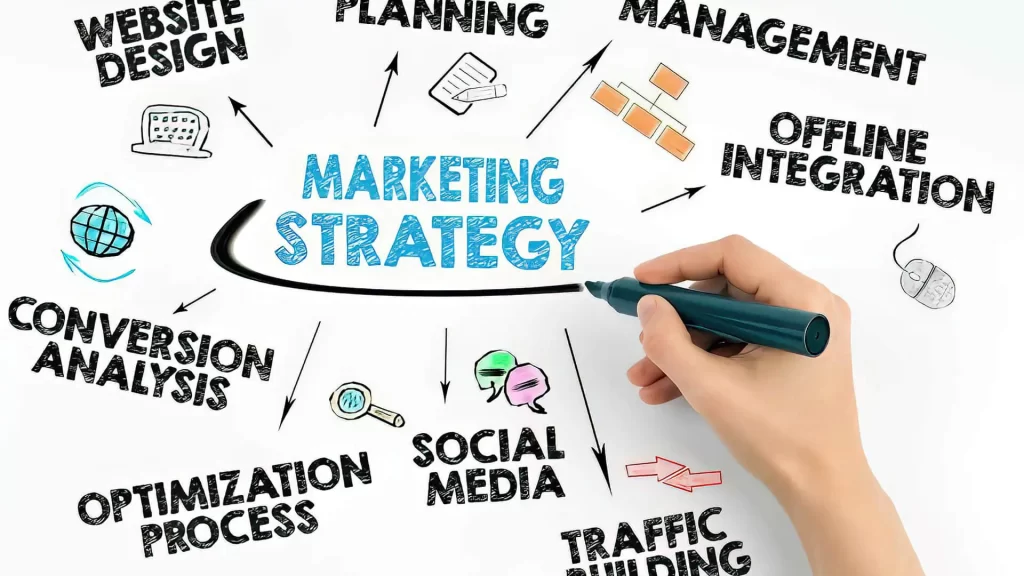The Complete Guide to SEO Marketing for Small Businesses in Sydney

As a small business owner in Sydney, establishing an online presence is essential to reaching your target audience and competing in a crowded marketplace. One of the most effective ways to do this is through Search Engine Optimization (SEO). SEO is the practice of optimizing your website to rank higher on search engines like Google, which increases visibility, drives traffic, and ultimately boosts sales.
This guide will walk you through the fundamentals of SEO marketing for small businesses in Sydney, providing actionable steps to improve your digital presence.
1. Understanding SEO and Its Importance for Small Businesses
SEO is the process of enhancing a website’s visibility on search engines by aligning its content and structure with what users are searching for. For small businesses, SEO offers the opportunity to connect with potential customers who are looking for services or products like yours.
SEO is especially important for small businesses in Sydney because it helps you compete against larger companies with bigger budgets. Through effective SEO strategies, small businesses can appear at the top of search results and attract organic traffic, which is free compared to paid advertising. link building sydney is an essential strategy for improving your website’s search engine ranking and increasing organic traffic, as it helps build high-quality backlinks from reputable sources.
Why is SEO Essential for Small Businesses in Sydney?
- Increased Visibility: With more people using search engines to find products and services, SEO ensures your business ranks higher.
- Cost-Effective Marketing: Unlike paid advertising, SEO offers long-term results without ongoing costs.
- Better User Experience: SEO involves optimizing your website for both search engines and users, leading to improved site usability and engagement.
- Local Reach: SEO can help local businesses in Sydney connect with nearby customers searching for specific services.
2. Keyword Research: The Foundation of SEO
Keyword research is the first step in building a successful SEO strategy. This involves identifying the terms and phrases your target audience uses when searching for businesses like yours.
How to Conduct Keyword Research:
- Brainstorm Keywords: Start by listing words and phrases that are directly related to your products or services. Consider variations and long-tail keywords (more specific, longer phrases).
- Use SEO Tools: Tools like Google Keyword Planner, SEMrush, and Ahrefs can help you identify high-traffic keywords relevant to your business.
- Analyze Competitors: Look at your competitors’ websites and identify the keywords they are targeting. This can provide insight into gaps in the market and opportunities to outperform them.
Targeting Local Keywords for Sydney-Based Businesses
As a local small business in Sydney, targeting location-based keywords is crucial. For instance, if you run a plumbing business, you should aim to rank for keywords like “best plumber in Sydney” or “emergency plumbing services in Sydney.” If you’re looking for expert guidance on improving your website’s visibility, check out the services offered by seosydneyagency.com to boost your online presence.
3. On-Page SEO: Optimizing Your Website for Search Engines
On-page SEO refers to the strategies used directly on your website to improve its ranking. This includes optimizing content, images, metadata, and site structure.
Key On-Page SEO Elements:
- Title Tags: Your title tags should be descriptive and contain primary keywords. For example, “Best Pizza in Sydney – Delicious Pizzas Delivered Fast.”
- Meta Descriptions: Although meta descriptions don’t directly impact rankings, they influence click-through rates. Write compelling meta descriptions that include keywords and a clear call to action.
- Headings (H1, H2, H3): Use appropriate heading tags to structure your content logically. The H1 tag should include your main keyword and summarize the page’s content.
- Content Optimization: Your website’s content should be relevant, informative, and naturally incorporate targeted keywords. Aim for high-quality content that solves the needs of your audience.
- Internal Linking: Link to other pages within your website to guide users and improve navigation.
- Alt Text for Images: Ensure that all images on your website have descriptive alt text with relevant keywords to improve search engine accessibility.
4. Technical SEO: Ensuring Your Website is Search Engine-Friendly
Technical SEO focuses on the back-end aspects of your website to ensure search engines can crawl, index, and understand it properly. It plays a key role in boosting your website’s ranking.
Essential Technical SEO Practices:
- Mobile-Friendliness: With most users browsing on mobile devices, your website must be mobile-friendly. Use responsive design to ensure your site works seamlessly across all screen sizes.
- Site Speed: Page load speed is a ranking factor. Slow websites can lead to high bounce rates. Optimize images, leverage browser caching, and minify JavaScript and CSS files to improve loading times.
- Secure Website (HTTPS): Google prioritizes secure websites. Ensure your site has an SSL certificate to encrypt user data and switch from HTTP to HTTPS.
- XML Sitemap: Submit an XML sitemap to search engines like Google to help them index your website more efficiently.
- Fix Broken Links: Broken links can harm your rankings and frustrate users. Regularly check and fix any broken links on your site.
5. Local SEO: Appearing in Local Search Results
Local SEO is crucial for businesses that serve customers in specific geographic areas, such as Sydney. Optimizing for local SEO helps you appear in search results when people search for businesses near them.
Local SEO Strategies:
- Google My Business: Claim and optimize your Google My Business (GMB) listing. Include accurate business details such as your name, address, phone number (NAP), hours of operation, and business category.
- Local Citations: Ensure your business is listed in local online directories and review sites, such as Yelp, Yellow Pages, and TrueLocal, with consistent NAP information.
- Customer Reviews: Encourage satisfied customers to leave positive reviews on Google and other relevant platforms. Respond to reviews to show engagement and build trust.
- Local Content: Create content that caters to the local audience. Write blog posts, create videos, and share customer success stories that highlight your business’s involvement in the Sydney community.
6. Off-Page SEO: Building Authority and Backlinks
Off-page SEO involves activities outside of your website that influence its rankings, with backlink building being a major component. Backlinks are links from other websites that point to your site and signal its authority to search engines.
How to Build Quality Backlinks:
- Guest Blogging: Write articles for reputable websites in your industry or related fields and include a link back to your site.
- Business Partnerships: Collaborate with other businesses in Sydney to exchange links or promote each other.
- Local Sponsorships and Events: Sponsor local events or participate in community activities, earning backlinks from event websites or news outlets.
- Press Releases: If your business has news to share, write a press release and distribute it to local media outlets, generating backlinks from reputable sources.
7. Monitoring and Measuring SEO Success
Once you’ve implemented SEO strategies, it’s essential to monitor their effectiveness to ensure you’re achieving your goals.
Key Metrics to Track:
- Organic Traffic: Use tools like Google Analytics to track the number of visitors arriving at your website from search engines.
- Keyword Rankings: Monitor your rankings for targeted keywords to see how your website is performing in search results.
- Bounce Rate: High bounce rates can indicate that users aren’t finding what they’re looking for. Aim to create engaging, relevant content that encourages users to stay longer.
- Conversion Rate: Ultimately, the goal of SEO is to convert visitors into customers. Track how many website visitors are taking action, such as filling out a contact form or making a purchase.
8. SEO Trends and Updates to Watch
SEO is constantly evolving, and staying up-to-date with the latest trends and updates is vital for continued success.
Key SEO Trends for Small Businesses in Sydney:
- Voice Search Optimization: With the rise of voice assistants like Siri and Alexa, optimize your content for voice search by focusing on natural language and long-tail keywords.
- AI and SEO: Artificial intelligence is shaping SEO strategies, from content creation to analyzing user intent. Stay informed about AI-driven SEO tools and practices.
- E-A-T (Expertise, Authoritativeness, Trustworthiness): Google emphasizes the importance of content that demonstrates expertise, authority, and trustworthiness. Ensure your website’s content is high-quality and authoritative.
Conclusion
SEO marketing is an invaluable tool for small businesses in Sydney looking to enhance their online presence and attract more customers. By conducting thorough keyword research, optimizing on-page and technical aspects of your website, and focusing on local SEO, you can significantly improve your search engine rankings. Building quality backlinks and continuously monitoring your SEO efforts will help sustain long-term success.
Remember, SEO is a long-term strategy, and the results won’t be immediate. However, with consistent effort and a well-executed plan, your small business can see significant growth in online visibility and customer engagement.





